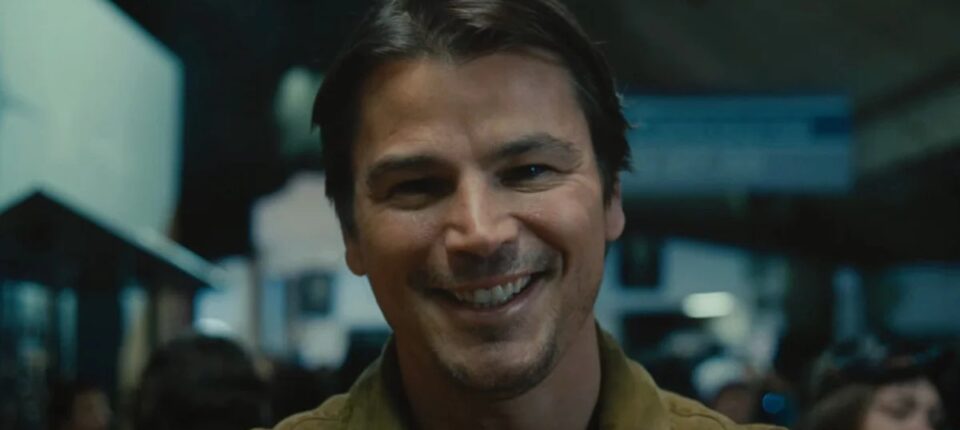I’m sure there are many of you who prefer your scary movies in the weeks leading up to Halloween, but for me, summer is the best season for horror. Maybe it’s because I find summer to be such a hopeful season, and that feeling is a good antidote to the anxiety-producing horror genre (as someone who, for some reason, spent 25 years in school, I certainly do not associate “hopefulness” with fall).
Anyway, I’ve been in luck, because this summer has produced a really fascinating slate of horror and psychological thriller films. There have been so many that I didn’t get to see them all; I missed A Quiet Place: Day One, The Strangers: Chapter One, In a Violent Nature, and The Watchers. (Let it be said, also, that spring 2024 was also a very good season for horror, bringing us the truly excellent The First Omen, the grisly Immaculate, the daffy Abigail, and the fabulous Late Night with the Devil.)
But, lo, summer is almost gone, and I would like to commemorate the interesting horror films it brought to us. So here we go!

Blink Twice
Zoë Kravitz co-wrote and directed this horrory whodunnit-style social satire about two best friends, Frida (Naomi Ackie) and Jess (Alia Shawkat), who wind up traveling in the entourage of a disgraced-but-atoning-for-it tech billionaire, Slater King (Channing Tatum), as he visits his private island. There are other women, too—played by Adria Arjona, Liz Caribel, Trew Mullen—and their function there seems to be “to be shown a good time.” For a while, the island seems like an oasis, with its swimming pools, luxe meals, ubiquitous drugs, and a lot of cute polaroid picture taking (phones aren’t allowed here, so real selfies are out of the question) but one morning, Frida discovers that things are not as peachy as they seem. It is glaringly obvious the whole time that this will be the case, and the movie doesn’t try to conceal that this will be its impending reveal.
The entourage, full of the kind of rich, white men you’d see in environments like this, is filled out with such luminaries as Christian Slater, Haley Joel Osment, Simon Rex, and Kyle MacLachlan. And Geena Davis is there, too, playing the kind of woman who always seems to enable “boys will be boys”-coded problems in these environments. Blink Twice has some fingers to point, but it’s not always clear what, exactly, it’s trying to call out. And that’s a shame, because there are a lot of points to be made in here, especially about race and also about gender and the nature of abuse, that are vaguely gestured to but never elaborated upon. To use the metaphor of its omnipresent polaroids, Blink Twice is a little under-exposed. You can tell what it’s capturing, sure, but the outlines are too faint to strike a hard contrast against the darkness.

Trap
I’ll say upfront that M. Night Shyamalan’s Trap isn’t perfect. There are the kind of pitfalls that always seem to pop up in Shyamalan’s movies (a tendency to over-explain some things, some strange or stilted dialogue), but I find these things less “pitfalls” than funny markers of style. Shyamalan is an auteur in the truest sense of the word, and, in an era of endless sequels and unwanted franchises, I find it a breath of fresh air that he always seems able to turn out a new, original idea. And Trap, which is a movie about a serial killer who realizes that the FBI are closing in on him while he takes his tween daughter to a Taylor Swift-style pop concert, is not only a delightful and original premise, but it is also executed with such love and care that it feels almost impossible not to enjoy.
First and foremost, it is a father-daughter movie. Our protagonist, the slick murderer Cooper (Josh Hartnett), adores his young daughter Riley (Ariel Donoghue), and is so excited to be able to be with her to enjoy her favorite artist, the pop singer Lady Raven (Saleka Shyamalan). His clear love for her and his family plays out nicely against his increasing need for self-preservation; as the walls begin to close in, he clings tight to his daughter, and it’s clear that for maybe the first time, he’s beginning to worry if this will be a day his daughter won’t forget not for its specialness, but its potential to upend her life. And second, Shyamalan’s own daughter Saleka, herself a singer-songwriter and musician, plays such a large part in this film, that it is clear that Trap is a family-affair, behind the scenes just as much as in front of the camera. I find it incredibly charming that, at the start of Shyamalan’s career, he was marketed as an extremely mysterious figure with a dark imagination, and now, maybe years later, he is perhaps most famous for seeming to be a very loving father.
Oh, one more thing… in Trap, there is an FBI agent/criminal profiler who is leading the manhunt, and she’s played by the great Hayley Mills. Hayley Mills is the former child star who played the original twins in the original version of The Parent Trap (1961). So, like, I can’t stop thinking about how M. Night Shyamalan cast the original parent-trapper in the original Parent Trap to lay a parent trap to trap a parent in Trap.

Strange Darling
I loved Strange Darling, JT Mollner’s wild and weird serial killer movie, which was shot all on 35 mm film by the actor-turned-cinematographer (I guess) Giovanni Ribisi. The medic from Saving Private Ryan! Phoebe’s brother Frank on Friends! And man, he’s a good DP. Strange Darling is as much as a visual treat as it is a narrative extravaganza, a fully controlled and impressive story told in an innovative way. It stars a superb Willa Fitzgerald as a young woman (simply called “the lady”) and an impressive Kyle Gallner (simply called “the demon”) and it drops us in the middle of their night, a night that has started as a one night stand and has twisted into a terrifying cat-and-mouse mounted by a serial killer. The shot that plays during the opening credits, of Fitzgerald’s character running desperately across a green field in bright red scrubs, her ear having been blasted off by a shotgun, is one of the most arresting things I’ve seen at the movies in a while. And the movie only gets more, well, arresting from there.

Longlegs
Longlegs! Whoever from NEON ran Longlegs’s press campaign deserves some sort of award, because it brought people to the theater in droves. That is great news. What’s not so great news is Longlegs itself, a movie that starts out as a taut psychological horror experiment about a young female FBI agent searching for a prolific and mysterious serial killer, and ends as a kind of vomit of half-chewed ideas; Longlegs begins with such an incredible sense of control, delivering itself to its audience in perfect morsels, and only later does it reveal that it has ravaged every single platter at the buffet. I’m so sad about this, because it’s filmed beautifully and with such care and deliberation. Maika Monroe, the film’s lead, gives a solid and impressive performance within very restrained parameters. Conversely, Nicolas Cage, who plays the film’s villain, certainly gives his performance his all. But you don’t ever want your horror movie to trip over a logistical hole, and you certainly don’t want it to plummet into a pile of so many logistical details that it’s impossible to come up clean, and Longlegs somehow manages to do both. By the end, I had so many questions that I think I’d dislocate my arm if I had to raise it on every one.

I Saw the TV Glow
I loved I Saw the TV Glow, Jane Schoenbrun’s haunting, atmospheric horror movie from the very start of summer. (It came out in May, so yes, we’re really scraping “spring,” but let me LIVE, will you?) It’s about two young teenagers, Owen (first played by Ian Foreman and then Justice Smith), and Maddy (Brigitte Lundy-Paine), who bond over a love of a Buffy the Vampire Slayer-style TV show called The Pink Opaque. The show’s eerie mystery appeals to them, but not as much as the incredible bond between the two young girl best friends who fight evil together. But there’s something else, too, something they can’t place. The film creeps along, and I mean creeps… I can’t remember the last time a film got under my skin this much… all the way to an electric and bursting conclusion, becoming a gorgeous reflection on the importance of community and a sharp metaphor for body dysmorphia and trans self-discovery. Beautiful, eerie, heartbreaking.

MaXXXine
MaXXXine is the long awaited final installment in Ti West’s darkly nostalgic Hollywood horror trilogy that began with X in 2022. Though the second installment, Pearl (which was released the same year), jumps back a few decades to tell an expositional story, MaXXXine is set in the 1980s, a few years after the events of X. Our (anti)heroine Maxine has made it to Hollywood and has launched a successful career in adult film and is trying to move towards more mainstream work with a role in a campy horror movie sequel, The Puritan II, directed by an up-and-coming woman director (Elizabeth Debicki). But someone from Maxine’s past seems to know what happened back at the farm that was the setting for X, and people around her start dying. Instead of the strange, splashy, inside-out-ed styles of both X and Pearl, MaXXXine becomes a conventional slasher movie, so conventional that I can’t actually fully remember what happens in it, except for the ending.

Cuckoo
Cuckoo might have suffered the same simultaneously under- and -over-explainy fate of Longlegs, but it doesn’t, somehow. This isn’t to say that it doesn’t step in a pile of expository nonsense every now and again, because it does, but I think it comes just short of making the mess of it all that Longlegs regrettably did. Maybe it’s because it’s less ambitious. I don’t know. Anyway, Cuckoo stars Hunter Schafer, playing Gretchen, a teenage girl who is dragged to a new home in the German Alps by her father (Márton Csókás), and young stepmother (Jessica Henwick); they’re building a new resort on the grounds of an older one, and are living here to oversee it. Gretchen’s much younger half-sister, Alma (Mila Lieu), who can’t speak verbally but who can hear and who communicates with a combination of sign-language and a computerized system, is excited by their new life. But Gretchen, who has just lost her beloved mother, is miserable. Worse, there’s nothing to do around the hotel grounds besides work at the hotel front desk, so she does. But the hotel’s creepy owner, known only as Herr König (Dan Stevens… what can’t he do?), offers her the job on the insistence that Gretchen not go out on her own after dark, which of course she does. This kicks off a series of experiences that, when she relates them to her disinterested family, only makes her seem crazy. It’s a fun, clever, mostly-coherent, creepy time, a great movie to watch instead of going on vacation.

















